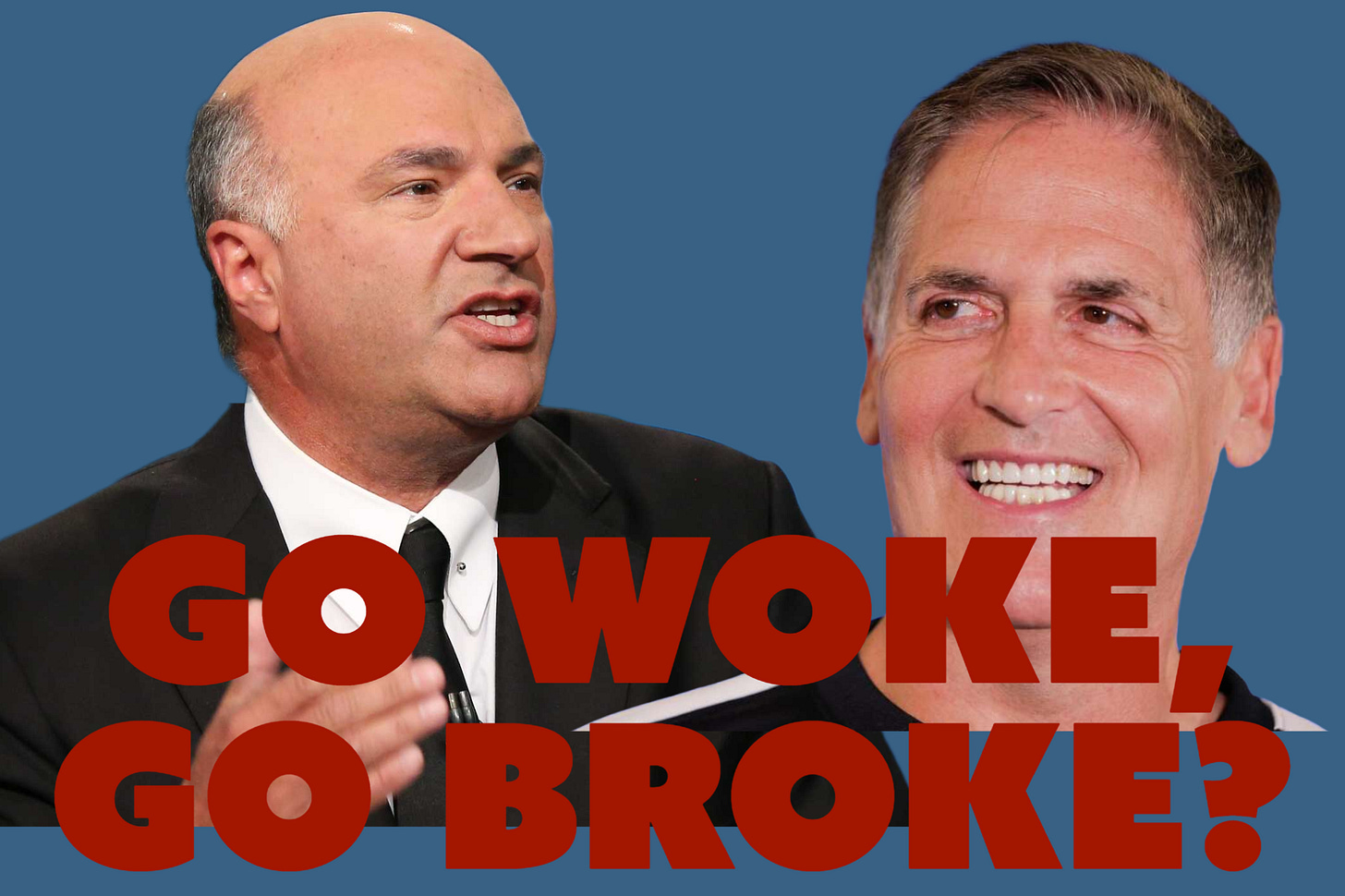Do woke companies go broke? The issue of corporate wokeness now has sparked debate between two stars from the TV show Shark Tank.
Billionaire Mark Cuban claims that companies such as Bud Light and Target that embrace a woke agenda are simply practicing “good business.” Yet since they began promoting woke agendas, both companies have suffered massive losses worth billions of dollars.
Bud Light has lost one-quarter of its sales—and its title as the best-selling beer in America—since announcing its partnership with transgender influencer Dylan Mulvaney. Target’s market cap likewise shed billions of dollars after the company began displaying Pride Month and children’s clothing that were “tuck-friendly” (pro-transgender).
Yet Cuban contends these business decisions are good and profitable. “There is a reason almost all the top ten market cap companies in the US can be considered ‘woke.’ It’s good business,” he said. He added, “Most CEOs have enough experience to know to just wait out the news cycle until they go to the next one.”
Cuban believes the Target stock “dip” was “meaningless” and not because individual stockholders dumped their shares due to the controversy. “You have to realize that there aren’t many individual owners of stocks—almost all ownership is via funds, and most trading is quantitative. So, it’s not like the drop is because tens of thousands of individual holders sold their stocks.”
The corporate trend of embracing woke policies suggests, in Cuban’s eyes, that “people want to do business with companies that care about their customers.”
Mr. Wonderful Disagrees
Shark Tank investor Kevin O’Leary (whose self-nickname is “Mister Wonderful”) firmly rebutted Cuban’s defense of woke corporate policies and marketing practices. He denounced them as “really bad business.” O’Leary assessed that Bud Light had sustained a lasting loss of market share of 25 percent. This blow is financially devastating, he noted, because beer and beverage companies spend “hundreds of millions of dollars” simply to grow a percentage point or two in market share.
O’Leary thinks it’s financially imprudent to wade into political or cultural controversies because companies risk alienating a segment of consumers. “You want to sell everybody everything all of the time. When you get involved in partisan issues, you basically lose 50% of your constituency,” O’Leary said.
“Why you would do that when you’re a consumer goods or service company, everybody’s learning, makes absolutely no sense,” he added. “When you actually make somebody angry enough to stop buying your product, you have failed.”
O’Leary rejects the idea that companies should try to mold society in some direction. “The role of a business, a corporation in America for the last 200 years has been to serve customers, their employees and their shareholders,” he said. “Their role is not to educate society on the social issue of the day. They’re learning that very quickly.”
A popular lecturer at the nation’s business schools, O’Leary said he plans to use Bud Light’s Dylan Mulvaney fiasco as an important case study in what companies should not do. “I’ve never seen a brand case like this one . . . There is no precedent for this,” O’Leary noted.
Finally, A Boycott That Works
Spontaneously started by conservatives and patriots weary of unending gay/trans aggression, the Bud Light boycott has been a source of encouragement after many similar boycotts over the years have fizzled out. Franklin Graham, President of the Christian organization Samaritan's Purse, typified the stance of faith-based objectors when he criticized Cuban’s comments to his nearly 3 million Twitter followers and called wokeness a “sin.”
Those looking for good news in the culture wars have found it in the sudden and spectacular collapse of Bud Light. After decades of steady retreat before a militant secular Left, we’ve recently seen Pride months become controversial and transgender ideology challenged successfully. When one of America’s biggest corporations takes it on the chin for trying to ram these ideologies down our throats, everybody gets the message.





I'm with O'Leary!!His stance"Businesses should serve customers,employees,shareholders"should be the gold standard,period!!!